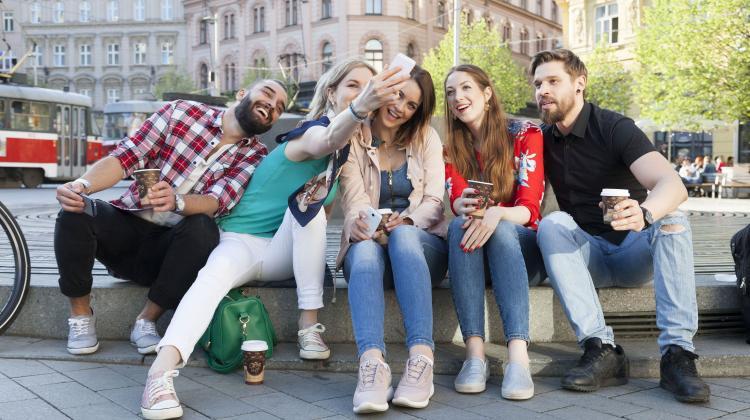Millennials Treat Their Homes as an Intimate, Fiercely Guarded World, says Anthropologist
 Credit: Adobe Stock
Credit: Adobe Stock
The generation of millennials (born in the 1980s and 1990s) treats their apartments as an intimate, fiercely guarded world. Unlike the generation of their parents and grandparents, these people prefer to meet with friends in public space, where everyone can feel at home, says cultural anthropologist Professor Wojciech Burszta.
During the pandemic, we have very limited opportunities to visit friends at home or meet them in public space. PAP asked cultural anthropologist Professor Wojciech Burszta from the SWPS University about the differences in the approach to home and inviting guests.
The researcher points out that for older generations, inviting guests for home visits was an obvious choice. “Name days, holidays, family celebrations, visits on non-working days... They were all home parties,” he says.
During communism in Poland, with a shortage of culture, the home was an extremely important place. “There were fewer pubs and alcohol could run out at any time. Meanwhile, at home, when guests were invited, everything was in excess. People would sit as long as they wanted, eat and drink without thinking about the gray world outside,” he says. He adds that there were no such big differences in what apartments looked like at that time: the furniture was unsurprising, interior design and the number of appliances were predictable, and there was less available entertainment. “Social contact, openness to others was obvious then,” he says, adding that that world has now disappeared.
In his opinion, those born in the 1980s and 1990s and who no longer remember these times of shortage, left home. These people are more likely than their parents to meet in pubs, cafes or city spaces. “Home,” he says, “is their +uterus+, a space they are reluctant to invite others. It is an intimate, fiercely guarded world.”
According to the researcher, this generation feels good in urban spaces because '”everyone can feel at home, and at the same time they are relieved of the need to worry whether everything will go well.
"The generation of millennials is very diverse, but most of them have small apartments. If someone has a studio or room, it is not really a space they want to fill with guests,” he says. He admits though that this may change for people who buy larger flats and be proud of it. “I do not rule out that then it will become fashionable among millennials to show off their apartments, homes, show their social advancement. This happens in bourgeois societies such as France or the US, where home is an important status indicator,” he says.
Meanwhile, city spaces, clubs, parks or boulevards, where people from younger generations meet, are places where everyone has equal status. “Everyone feels the same, they are not obliged to do anything, they do not have to show anything, they do not have to be ashamed of anything,” he says.
Professor Burszta also says he is curious about if the pandemic will change anything in the patterns of inviting guests home. He said: “I think the restrictions will continue a little longer. But once we live in a relatively safe world, will there be a tendency to visit each other more often?” Maybe people - regardless of generation - will want to see guests in their homes. “And when they invite them, they will be able to tell them: look, this is where I spent all these months of isolation with my dog. It was our catwalk during the pandemic,” says Burszta.
The anthropologist hopes that this time will make younger generations 'domesticate' home contacts with others. He said: “And this domestication will result from the need for closer contact with a larger group of people. After all, we now live in a world where such contact is completely impossible.” (PAP)
author: Ludwika Tomala
lt/ ekr/ kap/
tr. RL
Przed dodaniem komentarza prosimy o zapoznanie z Regulaminem forum serwisu Nauka w Polsce.
















